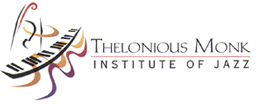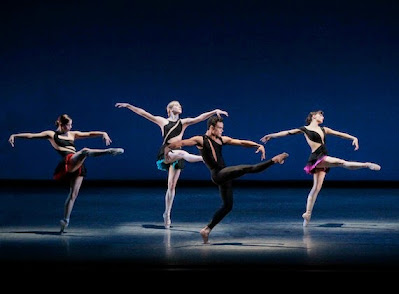International Jazz day
And I continue to write about Arts education to celebrate today the International Jazz Day for the 2nd year.
On April 30, 2012, UNESCO celebrated the 1st International Jazz Day.
On April 30, 2012, UNESCO celebrated the 1st International Jazz Day.
"This day is destined to raise awareness in the international community regarding jazz’s virtues as an educational tool, as a vehicle for peace, unity, dialogue, and for enhanced cooperation between peoples."
Spurred by the success of the first celebration, UNESCO, in partnership with the Thelonious Monk Institute of Jazz (TMIJ) is organizing the second International Jazz Day on April 30th, 2013.
In April 2012, UNESCO Goodwill Ambassador Herbie Hancock and TMIJ spearheaded and organized the historical events which took place around the world where jazz legends gathered together for key events at UNESCO’s Headquarters in Paris, at the United Nations’ Headquarters in New York, as well as at the emblematic Congo Square in New Orleans.
From Algiers to Buenos Aires, from Kuala Lumpur to Warsaw, from Lomé to Santo Domingo, more than a hundred countries celebrated this day.
From Algiers to Buenos Aires, from Kuala Lumpur to Warsaw, from Lomé to Santo Domingo, more than a hundred countries celebrated this day.
Istambul is the official host city for 2013. Turkey has an age-old tradition of jazz. Munir Ertegun, Turkish Republic’s first ambassador to Washington in the 1930s, opened his embassy’s parlors to African American jazz musicians, who gathered there to play freely in a socio-historical context which was deeply divided by racial segregation at the time.
"Turkey welcomes the opportunity to host UNESCO’s International Jazz Day on 29-30 April, 2013, in Istanbul. On this occasion, we shall celebrate jazz music not only as a global language of human soul, but also that of more inclusive societies, mutually enhancing civilisations, and UNESCO ideals."
Ahmet Davutoglu & Omer Celik, message
Education:
"Jazz has no boundaries. Our soul, our thoughts, our culture, our life reflects to music and it touches so many people's lives. On International #Jazzday, April 30, by all of us dedicating music with our passion in many different places,
I am sure that all our energy will lead this earth to the direction for more peaceful world."
Some Activities to introduce jazz music at school:
- Play video clips of jazz performances. Ask sutdents if they already knew jazz music;
- Play jazz recordings in your classroom. Discuss with your students what they do or don’t like about the music.
- Decorate your classroom with jazz posters, or pictures of jazz artists. Ask students to complete the selection;
- Encourage students to explore some of the many great jazz websites as BlueNote or online magazines as Jazzyz Magazine.
- Schedule a jazz-themed performance or concert by your school band or choir if you are a Music teacher;
- Invite a local expert from a Voicational Jazz School to conduct the listening session or give a talk to your class;
- Ask your students to draw or write about how jazz makes them feel or think;
- Use one of the many lesson plans available at www.jazzinamerica.org if you are a not a Music teacher;
- Have students research the local roots of jazz or visit the Vocatonal Jazz School in your town or city;
- Ask your students to interview older relatives about their experiences with jazz music. Have students listen to their favorite songs and share the results with the class;
- Have students write a skit or play based on the life of a great jazz musician.
Resources:
- The Thelonious Monk Institute of Jazz is to offer public school-based jazz education programs for young people around the world, helping students develop imaginative thinking, creativity, curiosity, a positive self image, and a respect for their own and others' cultural heritage;
- The Jazz Education Network is dedicated to building the jazz arts community by advancing education, promoting performance, and developing new audiences;
- Lincoln Center: The Jazz for Young People for teachers and students, for kids and families, public programs, online learning;
- PBS Kids for kids: games, videos, band, awards.
Teachers and students will embrace the opportunity to foster greater appreciation not only for the music but also for the contribution it can make to building more inclusive societies.
Jazz is not one day! You can schedule a "Jazz week" at your school. You and your students will have the time to develop different activities and share some good experiences.
G-Souto
30.04.2013
Copyright © 2013G-Souto'sBlog, gsouto-digitalteacher.blogspot.com®

International Jazz Day & Education by G-Souto is licensed under a Creative Commons Attribution-NonCommercial-NoDerivatives 4.0 International License.













